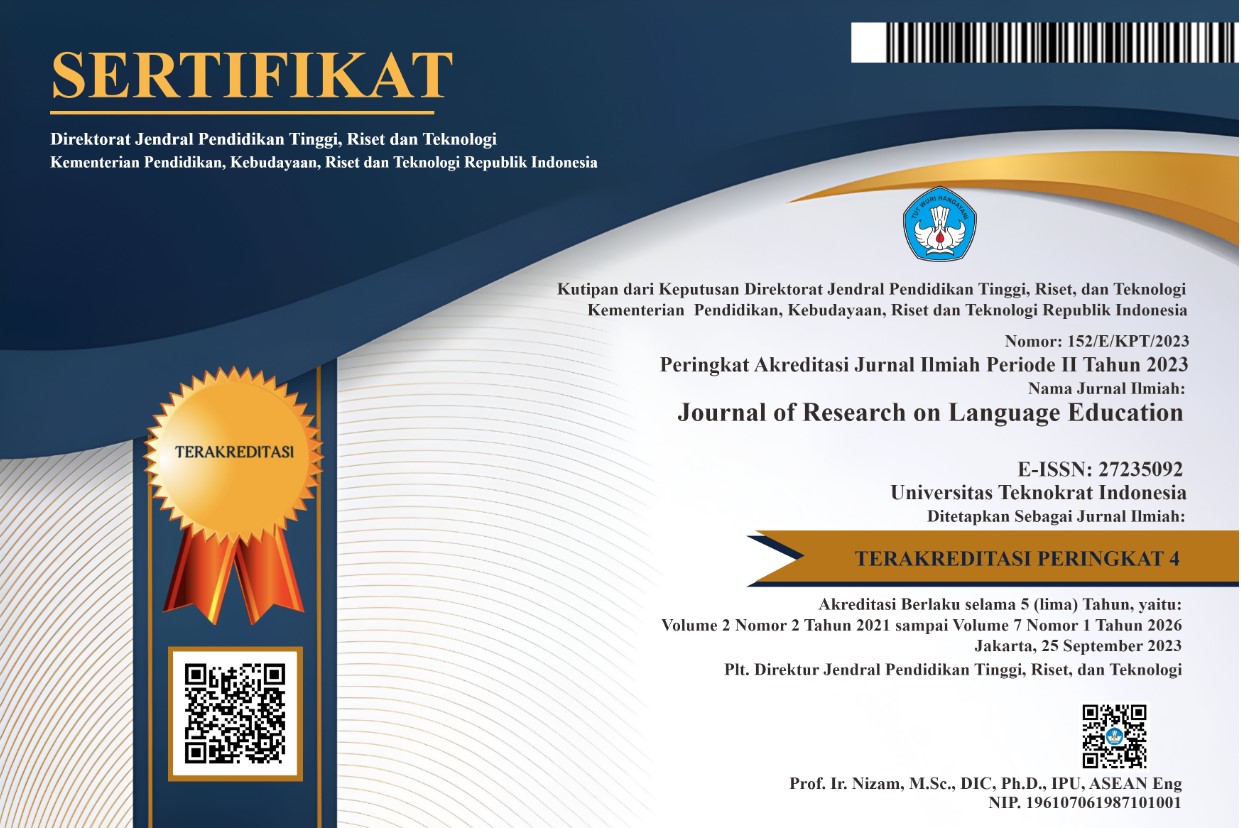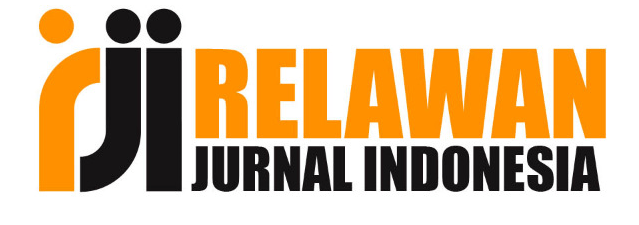ENGLISH TEACHERS’ PERCEPTION ON THE IMPACT OF PRE AND IN-SERVICE TRAINING
Abstract
Numerous efforts have been undertaken by not only government but also other institutions in order to reach the goal of enhancing teacher professionalism. Pre-service and in-service trainings are the examples. However, there is actually a need to see teacher’s perception towards the effects on joining such trainings and see what issues emerge related to the trainings. This paper attempts to answer all these needs by giving the results of interview with vice principal of curriculum, English teachers, and students of SMKN 3 Malang. This research employs narrative inquiry research. The research uses interview to collect data from the vice principal of curriculum, three English teachers, and students who are taught by the teachers. The results showed that pre-service and in-service training give positive impacts on the professional development of the teachers at SMKN 3 Malang. Issues related to the trainings appear into some forms. Teachers’ unpreparedness in teaching vocational school students due to the lack of trainings about ESP that should have been actually taught more at university. Therefore, it is apparently important for government or universities to provide more pre-service trainings for student-teachers, not only about teaching general English, but also English for special purposes. The researchers also perceive that it is not exaggerating for vocational schools to give more trainings on ESP for the teachers before they are hired. Also, the teachers worry about the correct format of recent curriculum and lesson plan taught on some in-service trainings.
Keywords
Full Text:
PDFReferences
Adnyani, D. P. D. P. (2015). A case study of professional development program for pre-service teacher in State University in Central Indonesia. Institute of International Education Department of Education. Stockholm, Stockholms Universitet. Unpublished thesis.
An, D. & Carr, M. (2017). Learning styles theory fails to explain learning and achievement: Recommendations for alternative approaches, Personality and Individual Differences, 116, pp 410-416, https://doi.org/10.1016/j.paid.2017.04.050
Archambault, L., Leary, H., & Rice, K. (2022). Pillars of Online Pedagogy: A Framework for Teaching in Online Learning Environments. Educational Psychologist. https://doi.org/10.1080/00461520.2022.2051513
Aydın, B., Sağlam, S. & Alan, B. (2016). Can CELTA qualification be the new bridge between pre-service and in-service education? Perceptions of in-service teachers. ELT Research Journal, 5 (2), 0-0. Retrieved from https://dergipark.org.tr/en/pub/eltrj/issue/24405/258715
Chandra, R. (2015). Classroom management for effective teaching. International Journal of Education and Psychological Research (IJEPR), 4(4).
Cochran-Smith, M. & Lytle, S. (2001). Beyond certainty: taking an inquiry stance on practice. In A. Lieberman & L. Miller (Eds.), Teachers Caught in the Action: Professional Development that Matters. New York: Teachers College Press.
Farrell, T. S. C. (2012). Novice-service language teacher development: Bridging the gap between pre-service and in-service education and development. TESOL Quaterly 46(3).
Fukkink, R., Helmerhorst, K., Gevers Deynoot-Schaub, M., & Sluiter. R. (2019). Training Interaction Skills of Pre-service ECEC Teachers: Moving from in-Service to Pre-service Professional Development. Early Childhood Educ J, 47, pp 497–507. https://doi.org/10.1007/s10643-019-00928-6
Holmes, A.G.D., Tuin, M.P, & Turner, S.L. (2021). Competence and competency in higher education, simple terms yet with complex meanings: Theoretical and practical issues for university teachers and assessors implementing Competency-Based Education (CBE). Educational Process: International Journal, 10(3).
Kebritchi, M., Lipschuetz, A., & Santiague, L. (2017). Issues and challenges for teaching successful online courses in higher education: A literature review. Journal of Educational Technology Systems, 46(1), 4–29. https://doi.org/10.1177/0047239516661713
Kuzmic, J. (1993). A beginning teacher’s search for meaning: Teacher socialization, organizational literacy, and empowerment. Teaching and Teacher Education, 10, pp 15–27. https://10.1016/0742-051X(94)90037-X
Moti, A. D., Olana, T., & Bekele, E. (2022). Trainees' perceptions towards the practice of competency-based assessment for learning in Oromia colleges: in particular to Shambu, Nakamte and D/Dollo CTE. JOLLT Journal of Languages and Language Teaching, 10(3), pp. 356-367. https://doi.org/10.33394/jollt.v%vi%i.5314
Mulyani. (2013). An analysis of english lesson plan academic year 2012/2013 at the first semester of Masdarul Ulum Banda Aceh. Unpublished Thesis. Banda Aceh: Syiah Kuala University.
Mumford, S & Dikilitaş, K. (2020). Pre-service Language Teachers Reflection Development through Online Interaction in a Hybrid Learning Course, Computers & Education, 144. https://doi.org/10.1016/j.compedu.2019.103706
Murkatik, K., Harapan, E., & Wardiah, D. (2020). The influence of professional and pedagogic competence on teacher’s performance. Journal of Social Work and Science Education, 1(1), 58-69. https://doi.org/10.52690/jswse.v1i1.10
Navarro, S.B., Zervas, P. Gesa, R.F., & Sampson, D.G. (2016). Developing Teachers’ Competences for Designing Inclusive Learning Experiences. Journal of Educational Technology & Society, 19(1), 17–27. http://www.jstor.org/stable/jeductechsoci.19.1.17
O’Brien, W., Adamakis, M., O’ Brien, N., Onofre, M., Martins, J., Dania, A., Makopoulou, K., Herold, F., Ng, K., & Costa, J. (2020). Implications for european physical education teacher education during the COVID-19 pandemic: a cross-institutional SWOT analysis. European Journal of Teacher Education, 43(4), pp 503-522. https://doi.org/10.1080/02619768.2020.1823963
Tondeur, J., Aesaert, K., Prestridge, S., & Consuegra, E. (2018). A multilevel analysis of what matters in the training of pre-service teacher's ICT competencies, Computers & Education, 122. https://doi.org/10.1016/j.compedu.2018.03.002
USAID. (2011). Designing Effective Education Programs for In-Service Teacher Professional Development. E. L. M. Ginsburg: American Institute for Research.
Vansteenkiste, M., Aelterman, N., Haerens, L. & Soenens, B. (2019). Seeking stability in stormy educational times: a need-based perspective on (de)motivating teaching grounded in self-determination theory. Motivation in Education at a Time of Global Change (Advances in Motivation and Achievement, Vol. 20), Emerald Publishing Limited, Bingley, pp. 53-80. https://doi.org/10.1108/S0749-742320190000020004
Widiati, U. & Hayati, N. (2015). Teacher professional education in indonesia and ASEAN 2015: Lessons learned from english language teacher education programs. In R. Stroupe & K. Kimura (Eds), ASEAN Integration and the Role of English Language Teaching. CamTESOL, Phnom Penh.
DOI: https://doi.org/10.33365/jorle.v3i2.2157
Refbacks
- There are currently no refbacks.

This work is licensed under a Creative Commons Attribution-NonCommercial-ShareAlike 4.0 International License.

Articles published in Journal of Research on Language Education is licensed
under a Creative Commons Attribution-ShareAlike 4.0 International License.
English Education Study Program, Faculty of Arts and Education.
Universitas Teknokrat Indonesia
Zainal Abidin Pagaralam 9-11 Bandar Lampung, Indonesia
All rights reserved.








